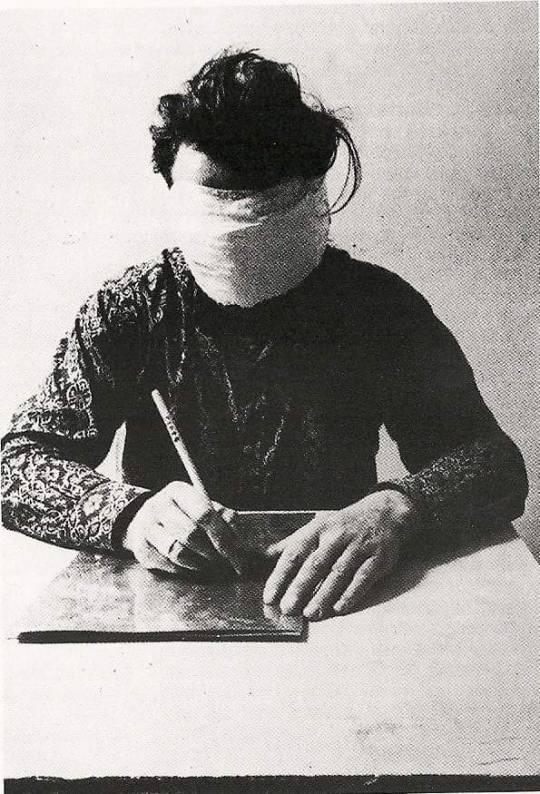Text
„Die Macht der Diktatoren bröckelte von Stunde zu Stunde sichtbarer. In den Straßen Moskaus fanden Artilleriekämpfe statt. „Nieder mit Lenin!" riefen die Arbeiter und Soldaten, „Er hat uns betrogen. Er ist der neue Zar!“ [...] „Von der Oktoberrevolution hatte die Arbeiterklasse ihre Befreiung erhofft; sie führte aber nur zu einer noch größeren Versklavung der menschlichen Persönlichkeit. Die Macht des zaristischen Polizeistaates fiel in die Hände der Usurpatoren, die, anstatt dem Volke die Freiheit zu geben, es von der Wetschka terrorisieren ließen.“ [...] „In Kronstadt wird das Banner der Rebellion gegen die dreijährige Tyrannei und Unterdrückung durch die kommunistische Autokratie erhoben, die den drei Jahrhunderte alten Despotismus der Monarchie völlig in den Schatten gestellt hat. Wir wollen die Freiheit des Denkens, die Freiheit des Handelns, die Freiheit des Lebens überhaupt. Hier in Kronstadt ist der Grundstein zur dritten Revolution gelegt worden, die die letzten Ketten der Arbeiter zerbrechen und einen neuen, breiten Weg zur Freilegung schöpferischer Kräfte im Sinne des ehrlichen, echten Sozialismus öffnen wird."
Wir hoffen sehr auf Kronstadt (unbekannter Autor)
4 notes
·
View notes
Text
»Die Entwicklung der menschlichen Arbeitsleistungen, Fähigkeiten, ihre Differenzierung und Spezialisierung vollzog sich von den Pharaonen bis Hitler unter der Peitsche der Antreiber. Von den Pyramiden bis zur Reichsautobahn sind die Dokumente der Geschichte ein Ergebnis der politischen Tatsache, dass Nichtarbeitende das Kommando über fremde Arbeitskraft eroberten. Aber nie zuvor war die Tatsache vollständig durchsichtig. Bebel oder Spartakus mussten noch eine spezielle organisierte Propaganda betreiben und um Einsicht werben für etwas, was heute offenkundig ist und keiner Propaganda bedarf. Der Mythus war nie so fadenscheinig. Er war nie so inadäquat.« (Heinz Langerhans 1941. How to Overcome Totalitarianism: 35, in Felix Klopotek 2022. Heinz Langerhans: Die totalitäre Erfahrung. Werkbiographie und Chronik: 135f.)
#heinz langehans#how to overcome totalitarianism#1941#kritische theorie#dialektik der aufklärung#ideologie#ideologiekritik#institut für sozialforschung#walter benjamin#theodor w. adorno#max horkheimer#entfremdung#adorno#kritik#karl marx#herrschaft#totalität#kapitalismus
4 notes
·
View notes
Photo

Forum, University of Bochum, Germany, 1971
(Klaus Huneke and Otfried Maul)
427 notes
·
View notes
Text
»Die einzig verständliche Sprache, die wir zueinander reden, sind unsre Gegenstände in ihrer Beziehung aufeinander. Eine menschliche Sprache verständen wir nicht, und sie bliebe effektlos; sie würde von der einen Seite als Bitte, als Flehen und darum als eine Demütigung gewußt, empfunden und daher mit Scham, mit dem Gefühl der Wegwerfung vorgebracht, von der andren Seite als Unverschämtheit oder Wahnwitz aufgenommen und zurückgewiesen werden. So sehr sind wir wechselseitig dem menschlichen Wesen entfremdet, daß die unmittelbare Sprache dieses Wesens uns als eine Verletzung der menschlichen Würde, dagegen die entfremdete Sprache der sachlichen Werte als die gerechtfertigte, selbstvertrauende und sichselbstanerkennende menschliche Würde erscheint.« (Karl Marx, Auszüge aus James Mills Buch „Elemens deconomie politique". MEW 40: 461)
10 notes
·
View notes
Photo

Church “Sainte-Bernadette du Banlay” (1963-66) in Nevers, France, by Claude Parent & Paul Virilio
635 notes
·
View notes
Text
»Das Allgemeine sorgt dafür, daß das ihm unterworfene Besondere nicht besser sei als es selbst. Das ist der Kern aller bis heute hergestellten Identität.« (Theodor W. Adorno, Negative Dialektik: 306).
#theodor w. adorno#identität#allgemeines und besonderes#negative dialektik#identitätsdenken#kritik#kritische theorie#adorno#allgemeines#besonderes#totalität#herrschaft
8 notes
·
View notes
Photo

Hajime Sawatari. Comme des Garçons catalogue, c.1980.
203 notes
·
View notes
Text
»Dem Frieden, dem gerechten Frieden in der Welt vermag die Politik als Profession nur in bescheidenem Maße zu dienen, solange er nicht als höchstentscheidende Idee den Geist der Völker, der mächtigen zunächst und schließlich aller Völker durchherrscht. Ich spreche nicht von Frieden mit Unrecht und Terror, vom Frieden um jeden Preis. Die Herrschaft des Schlechten im Innern, wie Mißachtung von Verträgen, Eroberung und Gewalt im Äußeren, fordern den Widerstand. …
Es geht um Verwirklichung gerechter, produktiver Ordnung, nicht um Unterwerfung unter das Schlechte.« (Max Horkheimer, 1968, Der Planet - unsere Heimat, GS 8, 320)
3 notes
·
View notes
Photo
ferran freixa
gran teatre del liceu

Ferran Freixa. Gran Teatre del Liceu, 1984.
235 notes
·
View notes
Text
»The objective existence of nature independently of humans
characterizes the basic insight of materialism.« (Kohei Saito, 2023, Marx in the Anthropocene. Towards the Idea of Degrowth Communism: 20)
1 note
·
View note
Text

H. Allen. The shell of the Crystal Palace in Sydenham, London, after its recent destruction by fire. The structure of the North Transept can be seen, looking towards the South Tower. 1936
982 notes
·
View notes
Text
G. M. Tamás (28 November 1948 - 15 January 2023)
»Prepare for hostility, solitude, derision, career setbacks, betrayals, infighting, the arid and disconsolate vistas offered by radical critique. Be unfashionable. Be uncool. Do not be a fanatic and a puritan. Nobody will be grateful to you, but cheap wine and cheap books are still available.« (Being on the Left in Eastern Europe)
#gaspar miklos tamas#being on the left in eastern europe#eastern europe#left#solitude#hostility#radical critique#marx#marxism#proletariat#capitalism#capitalist realism#infighting#g.m.tamás#tamás#tamás gáspár miklós#gáspár miklós tamás#puritan
12 notes
·
View notes
Text

»That fascism lives on, that the oft-invoked working through of the past has to this day been unsuccessful and has degenerated into its own caricature, an empty and cold forgetting, is due to the fact that the objective conditions of society that engendered fascism continue to exist. Fascism essentially cannot be derived from subjective dispositions. The economic order, and to a great extent also the economic organization modeled upon it, now as then renders the majority of people dependent upon conditions beyond their control and thus maintains them in a state of political immaturity. If they want to live, then no other avenue remains but to adapt, submit themselves to the given conditions; they must negate precisely that autonomous subjectivity to which the idea of democracy appeals; they can preserve themselves only if they renounce their self. To see through the nexus of deception, they would need to make precisely that painful intellectual effort that the organization of everyday life, and not least of all a culture industry inflated to the point of totality, prevents. The necessity of such adaptation, of identification with the given, the status quo, with power as such, creates the potential for totalitarianism.« (Theodor W. Adorno, The Meaning of Working Through the Past, 1959)
5 notes
·
View notes
Text

5 notes
·
View notes
Audio
madame germen | a morte das linguas
9 notes
·
View notes
Quote
The perhaps most fundamental claim of this thesis is that the couplet violence-ideology leaves an important form of power unexamined, namely what I will refer to as economic power. This form of power has its roots in the ability to re-organise the material conditions of social reproduction. By social reproduction, I mean the processes and activities involved in securing the continuous existence of a given society. Whereas violence and ideology directly address the subject, economic power addresses it only indirectly through the manipulation of its socio-material environment. Economic power thus has to do with the way in which social relations of domination reproduce themselves by being inscribed in the environment of the subject.
Søren Mau 2019. Mute Compulsion. A Theory of the Economic Power of Capital: 12
#søren mau#mute compulsion#2019#economic power#capital#material conditions#social reproduction#violence#ideology
4 notes
·
View notes
